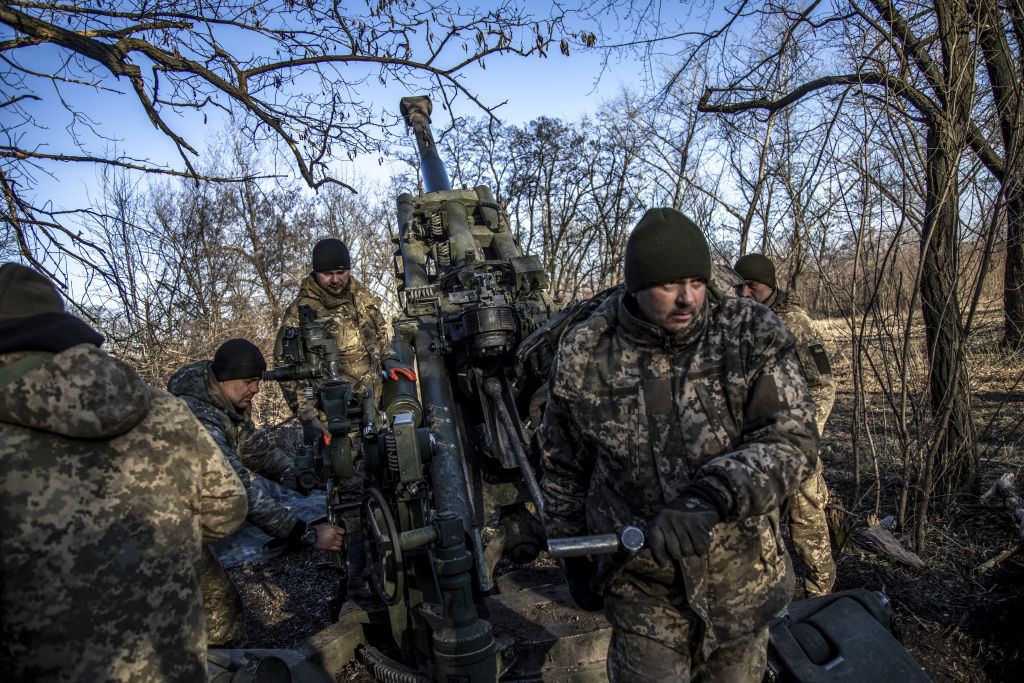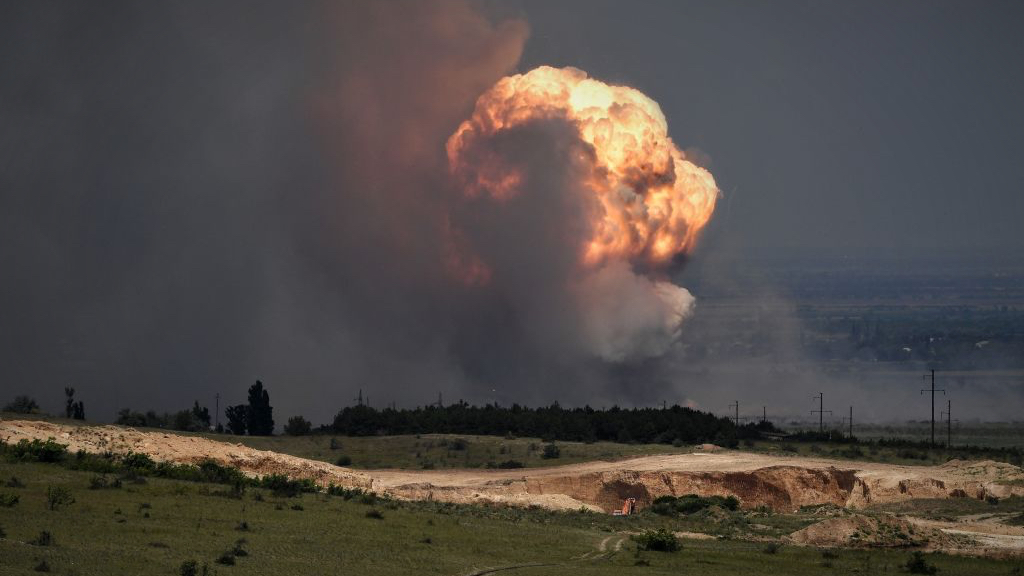Zelensky says Ukraine is reinforcing Bakhmut positions, not withdrawing. Here's why that may pay off.


A free daily email with the biggest news stories of the day – and the best features from TheWeek.com
You are now subscribed
Your newsletter sign-up was successful
Ukrainian President Volodymyr Zelensky said late Monday that after meeting with Ukraine's top commander and the commander of eastern forces, all three agreed on "continuing the defense operation and further strengthening our positions in Bakhmut," the flattened city in eastern Ukraine that Russian forces have been trying to capture for eight months. The losses have been tremendous, especially on the Russian side. "Do not withdraw," Zelensky said in his nightly address, summarizing the clear directives from the generals. "Reinforce."
Russia's Wagner mercenaries and regular Russian forces have surrounded Bakhmut on three sides, though a Ukrainian counteroffensive over the weekend reinforced the main supply — and escape — route. Ukrainian forces have completely withdrawn "from the roughly one-third of the city's area that sits on the eastern bank of the Bakhmutka River," The Wall Street Journal reports, and "are concentrating on holding the central and western parts of the city, with easily defensible positions." The fighting is so close-quartered that hand-to-hand combat is not uncommon, Ukrainian soldiers say.
"Ukraine has been able to use Bakhmut as a kill box to grind down the vast numbers of newly mobilized Russian soldiers" and Wagner forces, The New York Times reports. Wagner sends waves of untrained recruits to their certain death, and when Ukraine troops are exhausted and their positions exposed, the elite Russian troops try to gain territory. "It's a working tactic," acknowledged Gen. Oleksandr Syrsky, the commander of Ukraine's eastern ground forces. "It's based on constant advancement, however slight, and takes absolutely no account of human losses."
The Week
Escape your echo chamber. Get the facts behind the news, plus analysis from multiple perspectives.

Sign up for The Week's Free Newsletters
From our morning news briefing to a weekly Good News Newsletter, get the best of The Week delivered directly to your inbox.
From our morning news briefing to a weekly Good News Newsletter, get the best of The Week delivered directly to your inbox.
Several Western analysts have suggested that Ukraine would be better off withdrawing from Bakhmut to conserve troops and ammunition for a planned spring offensive. U.S. Defense Secretary Lloyd Austin said Monday that Bakhmut "is more of a symbolic value than it is strategic and operational value," and a potential Ukrainian pullback "won't necessarily mean that the Russians have changed the tide of this fight."
Austin is right that "Bakhmut is not intrinsically significant operationally or strategically," and losing it would not be "of major operational or strategic concern to Ukraine," the Institute for the Study of War (ISW) think tank assessed. "But Ukraine's fight for Bakhmut has become strategically significant," because Ukraine is now grinding down not just Wagner prison recruits but also "elite elements of the Wagner Group and from Russian airborne units."
Wagner may not have enough men and ammunition to capture Bahkmut, ISW added. But either way, degrading Wagner's forces — its best troops and its "cannon fodder" — and elite Russian forces in an arena so favorable to Ukraine means "they will not be available for more important fights" to come.
A free daily email with the biggest news stories of the day – and the best features from TheWeek.com
Peter has worked as a news and culture writer and editor at The Week since the site's launch in 2008. He covers politics, world affairs, religion and cultural currents. His journalism career began as a copy editor at a financial newswire and has included editorial positions at The New York Times Magazine, Facts on File, and Oregon State University.
-
 How the FCC’s ‘equal time’ rule works
How the FCC’s ‘equal time’ rule worksIn the Spotlight The law is at the heart of the Colbert-CBS conflict
-
 What is the endgame in the DHS shutdown?
What is the endgame in the DHS shutdown?Today’s Big Question Democrats want to rein in ICE’s immigration crackdown
-
 ‘Poor time management isn’t just an inconvenience’
‘Poor time management isn’t just an inconvenience’Instant Opinion Opinion, comment and editorials of the day
-
 Russia's Crimea fleet shipyard on fire after Ukrainian missile strike
Russia's Crimea fleet shipyard on fire after Ukrainian missile strikePhotos and videos showed huge explosions and raging fires at the Sevastopol Shipyard
-
 Nobody seems surprised Wagner's Prigozhin died under suspicious circumstances
Nobody seems surprised Wagner's Prigozhin died under suspicious circumstancesSpeed Read
-
 Western mountain climbers allegedly left Pakistani porter to die on K2
Western mountain climbers allegedly left Pakistani porter to die on K2Speed Read
-
 'Circular saw blades' divide controversial Rio Grande buoys installed by Texas governor
'Circular saw blades' divide controversial Rio Grande buoys installed by Texas governorSpeed Read
-
 Los Angeles city workers stage 1-day walkout over labor conditions
Los Angeles city workers stage 1-day walkout over labor conditionsSpeed Read
-
 Mega Millions jackpot climbs to an estimated $1.55 billion
Mega Millions jackpot climbs to an estimated $1.55 billionSpeed Read
-
 Bangladesh dealing with worst dengue fever outbreak on record
Bangladesh dealing with worst dengue fever outbreak on recordSpeed Read
-
 Glacial outburst flooding in Juneau destroys homes
Glacial outburst flooding in Juneau destroys homesSpeed Read
